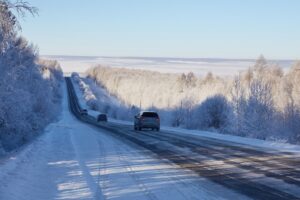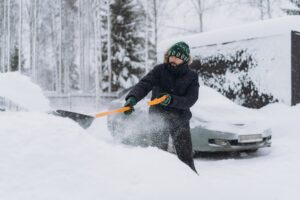Compost Is More Than Just Garden Fertilizer
Most people think of composting as a way to keep food scraps out of landfills or make soil healthier. But the ripple effects are much bigger. Composting supports wildlife, strengthens ecosystems, and reduces pollution in ways that touch everything from pollinators to waterways.
Here are 12 ways that simple act of turning scraps into soil helps protect the natural world.
1. Keeps Food Waste Out of Landfills
Food scraps in landfills produce methane, a potent greenhouse gas. Composting reduces this climate impact, helping stabilize ecosystems threatened by rising temperatures.
2. Builds Healthier Soil
Compost enriches soil with nutrients and organic matter. Healthy soil fosters plant growth, which in turn supports insects, birds, and mammals that depend on vegetation.
3. Supports Pollinators
Plants grown in compost-rich soil produce stronger flowers and more pollen. This benefits bees, butterflies, and other pollinators crucial for food webs.
4. Reduces Need for Chemical Fertilizers
Synthetic fertilizers often run off into rivers, poisoning aquatic life. Compost naturally feeds plants, cutting reliance on harmful chemicals.
5. Improves Water Retention
Soils with compost hold more water, reducing drought stress on plants and animals that depend on them. It also lessens flooding that can destroy habitats.
6. Prevents Erosion
Compost binds soil particles together, preventing erosion. Stable soils protect streams, wetlands, and the species that live in them.
7. Creates Habitat for Microorganisms
Compost teems with life — bacteria, fungi, and microfauna. These microorganisms form the base of food chains and drive nutrient cycles in ecosystems.
8. Provides Food for Earthworms and Insects
When you compost, you create a buffet for soil organisms. Earthworms, beetles, and beneficial insects thrive in compost-enriched soil, feeding birds and small mammals.
9. Reduces Pesticide Use
Plants grown in compost are healthier and more resistant to pests, reducing the need for toxic pesticides that harm wildlife.
10. Filters Pollutants
Compost applied to soil can absorb and break down pollutants, keeping toxins out of streams, wetlands, and oceans where they harm fish and amphibians.
11. Supports Urban Wildlife
Community composting and backyard piles create green spaces rich with insects and plants. These small habitats help urban wildlife survive in fragmented landscapes.
12. Strengthens Entire Food Webs
At its core, composting recycles nutrients back into the system. This strengthens the base of food webs, supporting plants, herbivores, predators, and the ecosystems they create together.
FAQs
Is composting safe for wildlife in my yard?
Yes — but use closed bins if you live in bear or raccoon country to prevent unwanted encounters.
Can compost help endangered species?
Indirectly, yes. By reducing pollution, improving soil, and cutting climate emissions, composting helps stabilize the ecosystems endangered species rely on.
Doesn’t compost attract pests?
Poorly managed piles can attract pests, but covered bins or balanced “greens and browns” make compost safe and wildlife-friendly.
Final Thoughts
Composting is often framed as a personal or garden benefit, but it’s really an ecosystem service. From feeding pollinators to preventing water pollution, it helps wildlife in ways most people never think about.
If a simple act like saving your banana peels can ripple into healthier ecosystems, what excuse is left? Start a pile, start a bin, start somewhere — and let the scraps do the work.








